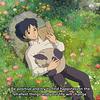You need to sign in or sign up before continuing.
Take a photo of a barcode or cover
idk. this book was ok for me. there were some memorable quotes and lines and murakami is notable in his prose, but the sex scenes? the sex scenes felt so weird and forced.
the sex scene with reiko was especially ass.
the sex scene with reiko was especially ass.
emotional
mysterious
reflective
slow-paced
Plot or Character Driven:
Character
Strong character development:
Yes
Loveable characters:
Yes
Diverse cast of characters:
N/A
Flaws of characters a main focus:
No
emotional
mysterious
reflective
sad
medium-paced
Plot or Character Driven:
Character
Strong character development:
Yes
Loveable characters:
Complicated
Diverse cast of characters:
No
Flaws of characters a main focus:
Complicated
Have you ever felt like your life is so pathetic, that everyone around you feels like they are so weak and going to crumble any second? Well, it felt just like that when I was reading this book. This is the second book I have read from Japanese author Haruki Murakami. And unlike the first book I read, which was none other than Kafka on the Shore, this one didn't involve talking cats and raining fish. Instead, it is a love story (or is it) from the perspective of the main character, Toru Watanabe.
See, there's plenty of girls that surround Toru, but there's mostly two girls that feature a lot, Naoko, and Midori. Naoko is an emotional train wreck. Naoko was the girlfriend of Toru's best friend, Kizuki. However, when Kizuki turned 17, he committed suicide, and Naoko became mentally unstable because of that. Midori on the other hand has her own sets of skeletons in the closet. However, unlike Naoko who is fey and fragile, Midori seems to be more upbeat, and is more successful in sending Toru's life into chaos.
So yes, this book is all about the lovelife of Toru Watanabe, as it intertwines between the lives of these two other women.
I suppose I cannot say that this is a favorite book of mine. There were several things about the book that didn't sit well with me, which makes it surprising that this is a book that sent Murakami into stardom. First of all, I hate the main character. I hate the fact that Murakami made Watanabe totally devoid of personality, and all the action is just happening outside of his person. Sure, I see the point. Watanabe is the mirror from which the reader observes the narrative world. Watanabe is just a tape recorder, and the characters that have more oomph are pretty much those who interact with Watanabe. This makes Watanabe a very passive character; in my opinion, he doesn't act, he simply reacts. And he reacts a lot. When it comes to his male friends, he simply tags along. He tags along with Nagasawa, even with Naoko and Midori. I don't know, I just hate it when characters are not self-propelled, especially the main character. One might as well conceptualize this novel as written in the third person, with an unknown observer reporting what has happened. Except that it is not the case.
I also do not see what the point was of opening this book as a flashback. The novel opens when the main character is 37 years old, in an airplane landing in Hamburg Airport. He hears "Norwegian Wood" and remembers the whole thing, the song sending him back to when he was 17. And yet the novel doesn't end with him being 37 again, instead, it ends inside the flashback. The novel doesn't make a concrete and explicit conclusion regarding the main character's relationships with these two women (yeah, I am not going to write a spoiler), so one asks, what happened to these women now that he is 37 and having a flashback? So, what is the point of this introductory flashback, if not simply to bridge "Norwegian Wood" as a Beatles song to the memories that are associated with it?
So yes, I didn't like this book that much. I'd rather read the magical realist Murakami, than the sappy love story Murakami. Perhaps this is the reason why this book was so popular to the point that it became the Murakami novel that everyone has read; because you don't need a lot of brain power to understand it. Which is not the case with Kafka on the Shore for example. In my case, I just liked it enough to continue on turning the pages, while still hating the characters. The characters just felt like they were all messed up; they might not be dead physically, but all seemed to be dead emotionally.
So there, I am giving this book 3 stars. It is average, and the only good thing I can find about this book is that it makes Murakami's other books more wonderful and awesome, if one compares it to this one. I will still go and read Murakami, but I'll make sure it's not a sappy love story first.
See my other book reviews here.
See, there's plenty of girls that surround Toru, but there's mostly two girls that feature a lot, Naoko, and Midori. Naoko is an emotional train wreck. Naoko was the girlfriend of Toru's best friend, Kizuki. However, when Kizuki turned 17, he committed suicide, and Naoko became mentally unstable because of that. Midori on the other hand has her own sets of skeletons in the closet. However, unlike Naoko who is fey and fragile, Midori seems to be more upbeat, and is more successful in sending Toru's life into chaos.
So yes, this book is all about the lovelife of Toru Watanabe, as it intertwines between the lives of these two other women.
I suppose I cannot say that this is a favorite book of mine. There were several things about the book that didn't sit well with me, which makes it surprising that this is a book that sent Murakami into stardom. First of all, I hate the main character. I hate the fact that Murakami made Watanabe totally devoid of personality, and all the action is just happening outside of his person. Sure, I see the point. Watanabe is the mirror from which the reader observes the narrative world. Watanabe is just a tape recorder, and the characters that have more oomph are pretty much those who interact with Watanabe. This makes Watanabe a very passive character; in my opinion, he doesn't act, he simply reacts. And he reacts a lot. When it comes to his male friends, he simply tags along. He tags along with Nagasawa, even with Naoko and Midori. I don't know, I just hate it when characters are not self-propelled, especially the main character. One might as well conceptualize this novel as written in the third person, with an unknown observer reporting what has happened. Except that it is not the case.
I also do not see what the point was of opening this book as a flashback. The novel opens when the main character is 37 years old, in an airplane landing in Hamburg Airport. He hears "Norwegian Wood" and remembers the whole thing, the song sending him back to when he was 17. And yet the novel doesn't end with him being 37 again, instead, it ends inside the flashback. The novel doesn't make a concrete and explicit conclusion regarding the main character's relationships with these two women (yeah, I am not going to write a spoiler), so one asks, what happened to these women now that he is 37 and having a flashback? So, what is the point of this introductory flashback, if not simply to bridge "Norwegian Wood" as a Beatles song to the memories that are associated with it?
So yes, I didn't like this book that much. I'd rather read the magical realist Murakami, than the sappy love story Murakami. Perhaps this is the reason why this book was so popular to the point that it became the Murakami novel that everyone has read; because you don't need a lot of brain power to understand it. Which is not the case with Kafka on the Shore for example. In my case, I just liked it enough to continue on turning the pages, while still hating the characters. The characters just felt like they were all messed up; they might not be dead physically, but all seemed to be dead emotionally.
So there, I am giving this book 3 stars. It is average, and the only good thing I can find about this book is that it makes Murakami's other books more wonderful and awesome, if one compares it to this one. I will still go and read Murakami, but I'll make sure it's not a sappy love story first.
See my other book reviews here.
dark
emotional
mysterious
reflective
sad
tense
medium-paced
Plot or Character Driven:
A mix
Strong character development:
Complicated
Loveable characters:
Complicated
Diverse cast of characters:
Yes
Flaws of characters a main focus:
Yes
“Tutta l’università è piena di questi ipocriti: passano la loro vita tremando per paura che gli altri possano scoprire che non hanno capito qualcosa. E naturalmente leggono gli stessi libri, si riempiono tutti degli stessi paroloni… Sarebbe questa la rivoluzione? Se la rivoluzione è questa, meglio farne senza.”
Ho finito questo libro in pochi giorni; non riuscivo a staccarmi. Avevo un po’ di timore a leggere Murakami per le strane recensioni di altri lettori… Ma ho trovato il libro interessante e coinvolgente, con molte similitudini con il Giovane Holden.
Cosa mi è piaciuto di più sono probabilmente l’intimità con cui vengono descritti i personaggi e la loro vulnerabilità. Un libro tutto umano.
Cosa mi è piaciuto di più sono probabilmente l’intimità con cui vengono descritti i personaggi e la loro vulnerabilità. Un libro tutto umano.
Tutti i personaggi e luoghi sono connessi da un filo quasi invisibile che, però, è abbastanza forte da rendere tutte le storie e le vite parte di un’unica grande corrente. La vita scorre e continua nonostante tutto; Non ci si può arrendere all’auto compassione, quella - come dice Nagasawa - va bene solo per la gente da poco.
Je ne trouve presque rien à redire à la plume de Murakami dans ce roman. Malheureusement, notre ami (non) sexisme est également au rendez-vous avec des personnages féminins globalement dépeints comme faibles, dépendantes des hommes et manipulables. Le regard que les hommes portent sur elles est également à vomir. À savoir si cela est volontaire et au profit de quelque chose que je n’ai pas saisi ou une énième œuvre où les femmes n’ont pas leur juste place…
(2009) Confesso di essere partito prevenuto con questo libro, e che probabilmente non l'avrei letto se non me lo avessero regalato. Eppure Murakami non mi è dispiaciuto con questa storia, ambientata in una società culturalmente molto diversa dalla nostra e che tratta con uno stile impeccabile le tematiche della solitudine, dei disagi e delle difficoltà a relazionarsi tipiche dell'adolescenza (ma non solo...), testimoniate dal numero inquietantemente alto di suicidi; e ancora, parla di vita, morte, amore e dolore, che provochiamo e che ci viene provocato inevitabilmente. Un buon libro, se non si cerca una storiella leggera :)




